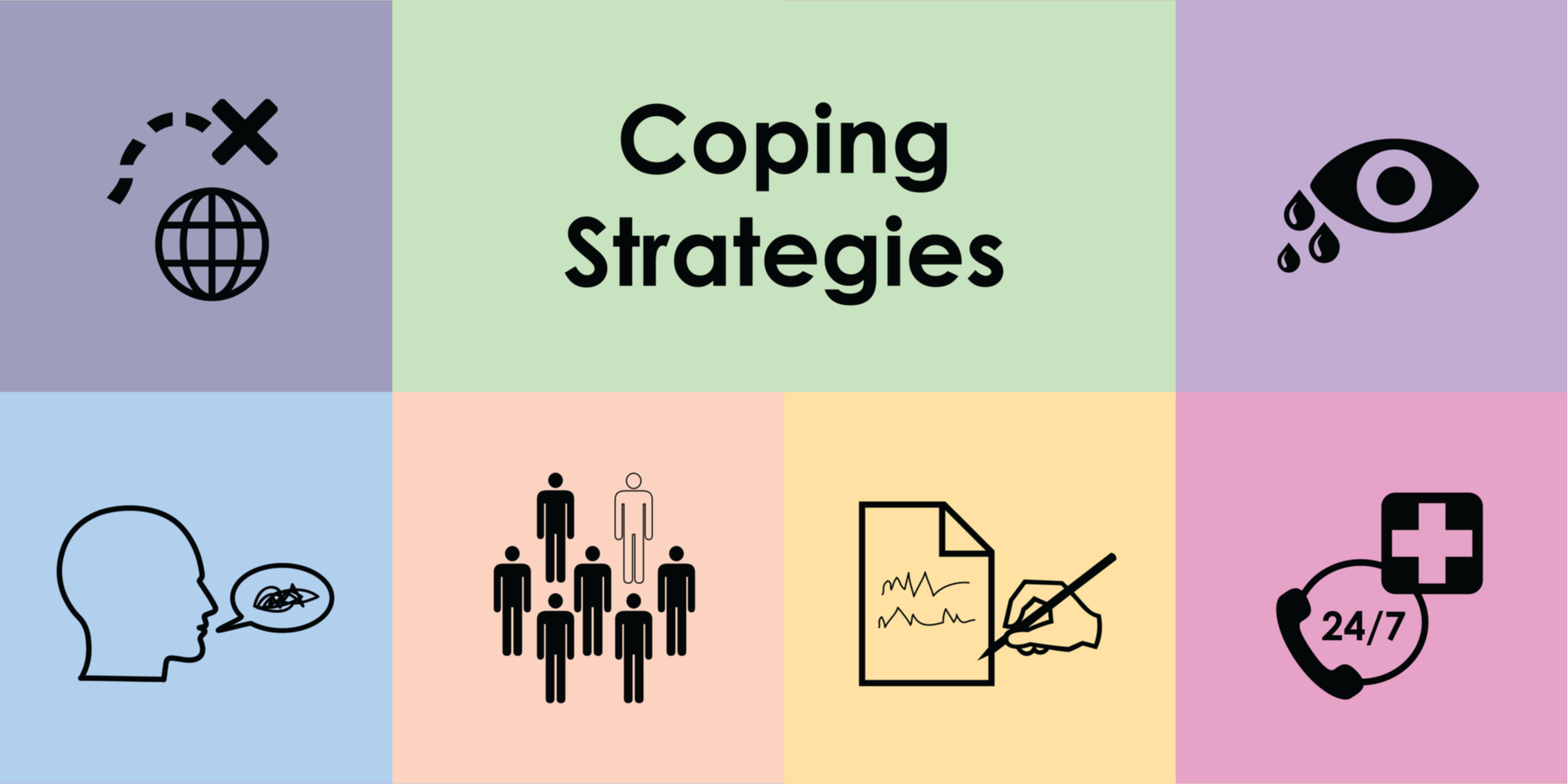How to Cope with Trump-Induced Anxiety
A commentary piece from US News and World Report

"There are important steps we can take. The first is to fight paralysis by finding or creating some semblance of community. Going it alone is never a good idea. Finding one or two trusted people to share our honest feelings with can act as a buffer against isolation. Others may find that joining an established community either in person or virtually helps ease loneliness. Either expressing or receiving empathy is an elixir against hopelessness, and participation in a community provides an opportunity for doing so regularly.
Second, having some action items helps reduce feelings of impotence and provides an emotional outlet. It is important to set realistic goals with the understanding that, while we may be limited in our power and influence, our daily choices matter. Finding ways to resist imposed changes can be empowering. A few people I know are writing letters to their representatives or working on political campaigns to help them feel they are making a difference. A professional organization of therapists that I belong to is forming a support group to help mitigate burnout from the increased intensity of our work. Finding a balance between staying informed and doom scrolling is not easy, but it is essential.
I often tell my patients that, at the end of the day, they want to be able to look themselves in the mirror and feel proud of who they are. Was I kind to the person at the checkout counter? Did I make time for a friend today? Did I let another driver merge rather than engage in road rage? How did I embody my values in my actions today? These simple acts can have a significant impact on our well-being even if others around us behave badly.
Third, it is important to be compassionate with ourselves. The current speed of change is an assault on our nervous systems. Whether we are grieving, frightened or furious, knowing our own limits and boundaries reduces our hesitation to speak up and helps our daily functioning. Finding healthy ways to reduce stress, rather than papering over our feelings, can help relieve anxiety and fend off depression – which, yes, can include a daily walk. But whether you do physical activity or not, remember: This is not a sprint, but a marathon.
This moment calls for resilience. People who are flexible and have a Plan B can pivot and tend to do better psychologically than those who merely rail against the chaos while hoping for the return to a way of life that may no longer exist. A man in my practice said, “There is rage under my depression, not sadness. I don’t know how to vent that in a healthy way.” In our work together, we are identifying whom he can trust enough to share the full expression of these feelings in order to relieve some of their weight. That will allow him to grieve the loss of dreams and change his expectations for his future, rather than stay stuck in his anger. This is hard, complicated work.
At the end of my workday, after listening to the damage being done to people, I am left feeling angry and empty myself. I do not offer false hope; rather, I offer connection and strength to help my patients find their own voice and increase their resilience during this onslaught. And then, following the advice of Voltaire, I tend my own garden, so I am prepared to meet the challenges of tomorrow."
9 Way to Preserve Your Sanity in the Current Political Era
From Psychology Today

1. Get active. Of course you should vote. But you can do more than vote. Translate your anger into action. Get involved in a neighborhood association, volunteer, call your elected representatives, organize rallies, protest, or even engage in good old American civil disobedience.
2. Join in community. Just as friends and (functional) family can help reduce other anxiety, being among people working toward similar political and social goals can support your sense of hope.
3. Limit social media. It’s easy to fall into the time vortex while on Facebook and Twitter, and equally easy to become consumed with stress as our contacts vent and share yet more examples of outrageous behavior and rhetoric emanating from Washington.
4. Watch your words. Keep a critical eye on how you frame the story of what you see or hear, and be equally critical of the words, language, and "factualness of the facts" you and others use in speaking about other people and framing the story.
5. Go outdoors. Breathe the open air, walk or hike, ride a bike, or simply sit in the sunshine. All of these are anxiety-busters.
6. Stay educated. Information is power, and the more you know about politics and the political process, the more you will also know what you should and shouldn’t be concerned about.
7. Read about resistance and resilience. At the Unitarian Universalist Congregation of Frederick, Maryland, minister Carl Gregg said the church’s summer 2017 reading of dystopian fiction—George Orwell’s 1984, Margaret Atwood’s The Handmaid’s Tale, and Octavia Butler’s Parable of the Talents—made it clear that “these books are not about hopelessness and despair. They are cautionary tales, but they also expose paths of resistance and resilience.”
Plus three more steps...
‘Trump Anxiety Syndrome’ and How To Protect Your Mental Health
From Black Doctor.org

"How to Protect Your Mental Health
"Monitor what media you digest
Studies have shown there are negative effects of people who watch traumatizing images over and over again. So it’s wise to monitor and even limit what news and even social outlets you read or interact with. You know the saying, “no negative energy”? Well, that needs to be true when you are on social media or any other kind of media. If you find yourself feeling bad about yourself, your situation without motivation for making it better for yourself instead, then you may want to stop watching/reading it. Also, if it makes you mad enough to go hurt something or someone, including yourself, then you may need to seek help.
Take a Break/Unplug/Do Something Different
Believe it or not, you actually can be away from your phone and not check messages, texts or social media for a few days. Yes, you can! It’s okay to unplug from social media–that doesn’t mean you are ignoring the problem, experts believe you actually giving your brain time to process what has been going on in the large scheme of things (i.e., how it affects your life). So, take a walk outside, get connected with people in real life, not just by text. Write an old-school letter to a loved one. Just because it’s been challenging to maintain connections during the pandemic, those are just a few of the wide variety of things you can do to stay connected to the ones you value most.
(Side Note: when you do connect with someone, be sure to stay off the topics that make you anxious, angry or frustrated.)
Get help if you need it
There are plenty of resources, both online and in real life, that can help you deal with the anxiety that arises around the election. If you or a loved one needs help, it’s best to check with a healthcare provider about finding the right type of treatment for your anxiety and stress. You can also find online providers that can offer support as we all go through this challenging time."
How to Cope with Post-Election Day Stress
From CNN (article and video)

How to cope with post-election stress
From the wellness website The Well

2024 Election Mental Health Resources | Mental Health America
Election resources from Mental Health America (scroll down the page to "Take Care of Yourself During Election Year")

10 ways to be prepared and grounded after the election results
From the nonprofit media organization Waging Nonviolence

"One pathway is called “Protecting People.” These are folks surviving and protecting our own — especially those of us directly targeted, such as trans people, folks choosing abortions and immigrants. This might mean organizing outside current systems for health care and mutual aid, or moving resources to communities that are getting targeted. Further examples include starting immigrant welcoming committees, abortion-support funds or training volunteers on safety skills to respond to white nationalist violence."







